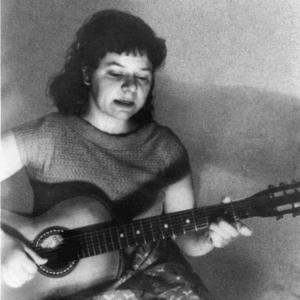Preference is an online card game. Play preference online with real players. Play preference for free and without registration in Russian Preference game with real players
Cost of games and remits (shortages of bribes in a game or on whist):
|
A game |
playing |
Whist |
||
|
For the game played, in the bullet |
For every bribe not taken at the game, up the hill | For every bribe, whists | For every bribe not collected on whist, uphill | |
|
6ª 6§ 6¨ 6© 6БК |
2 per bullet |
4 uphill |
4 whist |
2 uphill |
|
7ª 7§ 7¨ 7© 7БК |
4 per bullet |
8 uphill |
8 whists |
4 uphill |
|
8ª 8§ 8¨ 8© 8БК |
6 per bullet |
12 uphill |
12 whists |
6 uphill |
|
minuscule |
10 per bullet |
20 uphill for each bribe received |
Whists are not written, mountains are not written |
|
|
9ª 9§ 9¨ 9© 9БК |
8 per bullet |
16 uphill |
16 whists |
8 uphill |
|
10ª 10§ 10¨ 10© 10БК |
10 per bullet |
20 uphill |
20 whists |
10 uphill |
Features of whistling in Leningrad.
Whist is semi-responsible. This means that for each shortfall in whist, the uphill defender is charged half the cost of the shortfall in the game.
For example, a six game was played. Declarer took seven tricks. The entry will be as follows.
1. The player who played the bullet gets 2 points for the six game played.
2. The whistler gets a bad deal: 1 (missed trick) * 2 (half the cost of the shortfall in a six-game game) = 2 points.
3. The one who whisted writes 3*4=12 whists to the player who played for 3 actual collected tricks.
Gentleman's whist. If the point guard does not collect enough tricks, then the consolidation and whists for the actual collected tricks are divided in half between the players who whisted and the players who passed.
Consolidation is written in addition to whists for actually collected bribes for both players.
For example, a game of seven was played. Declarer took five tricks. One player whistled, the other passed. The whistler, accordingly, took five bribes. The recording will be done as follows:
1. For a shortfall of 2 tricks, the player receives 2*8=16 points.
2. 5 actual bribes: 5*8=40 whists;
consolidation for two additional tricks for each player: 2*2*8=32 whists.
In total, 40+32=72 whists will be recorded for the player, with:
the one who whistled will write down 72/2=36 whists to the one who played;
the passer will write down 72/2=36 whists to the player.
Passes
The entry for bribes collected during passes is made uphill. The base cost of a passing bribe is agreed upon before the start of the game. Usually this is two points per trick.
The cost of a bribe on passes depends on which passes are played without interruption. Typically, the cost of a bribe is calculated according to arithmetic progression– 2,4,6 – that is, on the first passes the cost of the bribe is two points, on the second – four points, on the third and further – six points.
If a player does not take a single bribe, then the cost of one bribe is written into his bullet.
The purchase at the pass opening opens. When playing with three players, the buy card shows the suit of the move; when playing with four players, the buy cards belong to the dealer.
Before the start of the game, it is necessary to agree on what to do if the fourth player did not take more than one bribe - write off the cost of one bribe in the current spreads (the idiot is clear - from the mountain) or write nothing off.
End of the game
They play until the total amount of bullets for all players reaches a pre-agreed value, multiplied by the number of players. Anyone who has less than the agreed value in the pool is credited with twice the difference between the actual points scored and this value; whoever has more in the pool writes off twice the difference between his points in the pool and this value.
Preference - rules of the game
Preference (French preference "preference, advantage") is a card game, also known as "bullet". Appeared in Russia in the middle of the 19th century. The predecessors of preference were whist and other card games. It is played by three, four (one in turn “on the side”) or two (hussar).
Preference is a commercial game in which winning or losing is determined to a greater extent by the skill of the player, unlike gambling. However, in preference, money is not an element of strategy (unlike poker, for example), which makes it an optional part of the game.
How to play - preference rules
The game uses a deck of 32 cards ranging from seven (low) to ace (high) of each suit.
To record bonus and penalty points, a specially marked sheet of paper is used - a bullet. Each player has three areas in the bullet: whists, bullet, mountain.
The game is played until all players have received the agreed number of points in the pool, or by the number of laps.
Card distribution and trading
The dealer shuffles the deck and deals three piles of 10 cards in pairs and puts 2 cards in the draw. When playing with three players, this should not be the first and not the last pair of cards; when playing with four players, the last two cards are put into the draw.
After which there is a bargaining between the players, which determines the type of game. Calls are announced in a clockwise order, with the player next to the dealer making the first call. The trade begins with the minimum game (6 spades) and each next player calls the game higher than the previous one, or folds, leaving the trade. Seniority - from 6 to 10, seniority of suits - spades, clubs, diamonds, hearts. The "no trump" game is older than any other trick game with the same number of claimed tricks. A minus bid cannot come from a player who has already called another game in the draw or has passed, and can be outbid by an order for a nine game, after which trading stops (there are variations of the rules in which you can declare a minus without a buy-in, which in turn can be interrupted application nine without purchase). If all players have passed, passes are played. If neither minus nor passes are played, betting continues until only one player remains.
There are 3 types of games: a game of bribes, minuscule, passes.
In the game of bribes, the winning player in the auction undertakes to play with a certain trump card (or without a trump card) and take a certain number of bribes. He takes the buy-in and discards two unnecessary cards. He then orders the game, that is, he finally announces the trump card (or lack thereof) and how many bribes he undertakes to take. You cannot order less than what you agreed to in the auction. For example, a player who has committed to playing 7 diamonds in a trade can order the game 7 diamonds, 7 hearts, 7 no trump, 8 spades, etc. but not 7 of spades or 6 of hearts.
Other players play together against him; each of them decides to check (whistle) or not check (pass). The defending player also undertakes to take a certain number of tricks. If both whistle, then the game is played closed. If one player whistles, then the game can be played open-handed, that is, both put cards on the table and the whistler plays for himself and for the passer. The goal of the game is for everyone to fulfill their contract (take the required number of bribes) and, if possible, violate the opponent’s contract (that is, force them to take fewer bribes than ordered in the game of bribes and give as many bribes as possible to the one who announced the minuscule).
With a minimum amount, the player undertakes not to take a single bribe. Opponents play openly and without a contract. Their goal is to force the player to take as many tricks as possible. The player takes the draw, shows all 12 cards to his opponents, closes all cards and discards two cards.
If the trade sounded like “pass-pass-pass”, passes are played.
When passing, everyone plays for himself, trying to take the minimum number of tricks, or less than his partner (in the Rostov convention). The buy-in cards either determine the coming suit of the first two tricks, or belong to the dealer (in a four-player game), or are not revealed ("Rostov", "Gusarik").
The main action in preference is the drawing of a bribe. Players place one card each in a specific order. The first player to move sets the suit. The rest must either carry cards of the same suit, or trump, if they do not have a given suit, or any card, if they do not have trump. The player who placed the highest card takes the trick. Bribes are counted by their number, regardless of the number and value of cards in them.
For each game played for bribes or minuscule, the player writes down a certain number of points for himself in the bullet, and the whistler - whists for the player. Exceeding the contract does not give anything to the player, but is dangerous for the defenders, since they are obliged to take at least the number of bribes specified by the convention.
For example, the player ordered a contract of 6 spades. And during the drawing he took 7 bribes. The two whistlers had to take 4 bribes. If both whistled, then the one who took less than two tricks will get the “uphill”. If there was only one whist, then he will get “uphill” without one (4-1=3), that is, as many as stipulated by the specific convention.
For each violation of the contract when playing for bribes or minuscule, players receive a certain number of points uphill. Tricks received during passes are also written up, or the player who took the least of all writes whists to others ("rostov").
The rules of the game, generally speaking, allow you to stop and sign the contract by agreement of the players at any time, as well as continue the game even after the bullet is closed. However, the ethics of the game dictate the requirement to play the bullet to the end. The game can be stopped early only due to very serious circumstances, for example, the illness of one of the players. At the moment when all players reach the limit, the game stops and one of them “paints the bullet”. When playing for money, as a rule, the received number of whists is multiplied by the price of the whist and players, according to the ethics of the commercial card game, must pay immediately.
There are various options for the agreed limitation of the game: by time, by the number of laps, to a certain value in the pool. The most common option is a limit in the pool agreed upon in advance by the players: for example, up to 20.
Types of preference
There are several conventions that determine the evaluation of games - the most famous are Sochinka, Leningradka and Rostov. The so-called classic version is also known.
In preference there are many variations of the rules that can be introduced into any convention and must be discussed before the start of each game, for example, Stalingrad (mandatory whist when playing tricks at 6 of spades).
This variety is characterized by responsible (“redneck”) whist. Since whisting is difficult, it is considered a "game against the whistler."
Whist in this convention is semi-responsible (“gentlemanly”). Accordingly, this variation can be considered as a “whistler’s game.” The mountain is usually double, and the bullet is limited in time.
When playing on passes, the buy-in does not open. The one who takes the least number of bribes records a certain number of whists on his partners. It is considered to be a game for master passers.
Bomb game. The ability to use "bombs" introduces a large element of randomness into the game.
A game with bonuses: to the one who covers the bullet first, and to the one who has the fewest points on the mountain. The size of the bonuses is subject to agreement between the players before the start of the game, most often 100 whists. Usually played "5 for 20" (sometimes "7 for 20"), that is, the game consists of five races to 20 in the pool. The one who first “jumped” to 20 points in the pool (“winner”) writes 100 whists for the rest. The one who at this moment has the smaller mountain (“amnister”) also writes 100 whists to the others. Thus, the bonuses of the “winner” and the “amnister” are mutually compensated, excluding the case when the player became both a “prizewinner” and an “amnister”. The bullet closes at this point and a new jump begins, and the mountain and whists do not close.
The following options may vary from company to company. Always check them before you start playing.
Zhlobsky, or responsible (all whists for baiting the player and fines for not taking bribes, the whistler writes to himself, both for himself and for the passer).
Gentlemanly, or semi-responsible (whists and penalties are divided in half between the whistler and the passer).
PASS-PASS-VIST (in the 8th and 9th games, the first defender can re-order VIST with two passes).
In the game of bribes:
Ten game (whistled (played) / checked).
The order "six peaks" is mandatory (the so-called "Stalingrad")/optional.
The first move of a player playing dark/light when lying down.
Possibility of caring for a half-wist (whist-pass-half-whist).
Exit from passes (simple/difficult/difficult, 6/6/6, 6/7/7, 6/7/8, respectively).
The price of a bribe on passes (usually 1 point, sometimes 2).
Progression of the price of a bribe on passes (absent/arithmetic/geometric).
The limit of progression of the price of a bribe on passes (growth stops after the first/second increase/never stops).
The buy-in is opened (the suit of the move is shown) or not (the suit is determined by the first player).
Does the dealer receive a penalty for bribes using cards from the buy-in?
Without a doubt, preference is one of the most exciting and intellectual card games, having fallen in love with which, you maintain this attitude for the rest of your life, isn’t it?
On our website you can happily remember and feel the exciting moments of a real game - but without leaving the monitor! We offer to play preference online. To do this, you just need to register on our website, come up with a nickname and password, you don’t need to pay anyone or anything. On our website you can play preference for free.
An example of playing preference online with real opponents on our website
Play preference for free
Complete the free registration process and join our community! Yes, yes, specifically to the community, because you will be playing free online preference against real opponents who are far or close to you, but just like you, sitting in front of your screen. Agree, this is a completely different matter than fighting a soulless machine with which you can’t even talk. But we can do it! Do you think that playing preference “for fun” is pointless? We thought about it. The game will be played with virtual money, so the winner and loser will be very real. And the recording of the game, which is quite difficult in preference, will be done by a computer, and it can’t make mistakes! Tempting? We assure you - there is no catch, you don’t pay anything, sit down at a virtual card table, receive virtual money, but you will play against real opponents, people just like you.

Rules of the game of preference
Deck of preference cards
A deck of cards in preference consists of 32 cards. There are 4 suits of 8 cards each - from Ace to Seven.
Seniority of suits in ascending order: spades, clubs, diamonds, hearts.
The seniority of cards in suit is ascending: seven, eight, nine, ten, jack, queen, king, ace.
One of the suits can be designated as a trump card, any trump card is higher than any non-trump card. In the trump suit, the seniority of the cards is preserved.
Rules for bribes and turn order in preference
The first card placed on the table is called a move. Each player must play one card per turn.
Cards are laid out according to the following rules:
On a move, the player must place a card of the move suit. If there are no cards of the move suit in the hand, the player must put a trump card. If there is no trump card, you can play any card.
The bribe is taken by the player who owns the highest card in this bribe, taking into account the trump cards.
In preference, the rights to make the first bid during trading and the first move in the game are transferred from player to player. The player who has the right to make the first move and make the first bid in trading is called the “first hand”. The next player is the “second hand” and the last player is the “third hand”.
Types of games in preference
There are three groups of games in preference - games of bribes, minuscule and passing.
In games for bribes, the player undertakes to take at least the number of bribes stated by him when trading. The game can be played with or without a trump card. The goal of the other players is to prevent him from doing this - that is, in turn, to take as many bribes as possible (if possible).
By declaring a minuscule amount, the player undertakes not to take a single bribe. Other players, on the contrary, try to force him to take bribes.
In passing games, each player tries to take as few tricks as possible.
Possible game orders
Games for bribes and minuscule in preference are ranked as follows: the minimum number of bribes that can be ordered is 6, the maximum is 10.
The player undertakes to take the stated number of tricks, while all the Whists must take in total, in a six-game game, at least 4 tricks, in a seven-game game, at least 2, in an eight-, nine-, ten-fold game, at least 1 trick. At the minimum, the Whists have no obligations.
For example, a 6 spades contract means that the player agrees to take at least 6 tricks with a trump suit of spades. You can play without trump (B/C), such a game is older than trump with the same number of tricks.
Recording in preference
The point of the game is to evaluate your cards, order and play the most profitable contract.
The results of games in preference are recorded in bullet, mountain and whist. For playing a contract, the player receives bullet points. For an ordered and unplayed contract, the player receives a fine. Players opposing the player write whists against him for every trick they take, and if they do not take the required number of tricks, they receive a fine.
The game protocol for recording bullets, mountains and whists is also called bullet.
Varieties of preference, differing in the cost of games and passes, the distribution of whists between players, peculiarities of trade are called conventions. Our project presents game options - Leningradka, Sochinka and Rostov.
Trade
Each hand is played by three players. 10 cards are dealt. The two remaining cards are called the draw, and their contents are unknown to anyone until the end of the trade.
The goal of trading in the game of preference is to obtain the right to buy and order the most profitable contract for yourself.
The preference trading process is as follows. Each player, in turn, clockwise, can make a request to play or refuse to play. When applying for a game, he must clearly indicate the type of game, and when refusing to play, he must declare “pass”. The player who saved does not take part in further trading. In turn, you can only make one application. The minimum order is six tricks, with a pike in trump cards - i.e. "6 spades". The next player can order, in accordance with the seniority of the games in the table, only the higher game, that is, “6 clubs”. The subsequent order can only be “6 diamonds”, etc. If the player does not want to bargain further, he can, in turn, declare “pass”. The last player who did not pass, who participated in the trade and made the highest bid, receives the right to buy and order a contract.
If all three players pass, a passing game is played - a game in which everyone tries to take as few tricks as possible.
Order a game
After the end of the trade, the buy-in is opened for everyone to see and given to the player who won the right to order the game. The player takes a buy-in and discards any two cards. After that, he must order the game. You can order any game no younger than the one on which the trade stopped. There is one exception - minuscule. You can only order a miniscule immediately. That is, you cannot first say “six of spades”, and then, on the next round of trading, say “minuscule”.
If a preference player has taken a buy-in, then it is mandatory to order the game, even if it is obviously impossible to win.
Game of bribes
The player who participated in the trade and took the buy-in is obliged to order a game not lower than the one that the trade reached. For example, if you traded until the 7th of spades, then you can no longer order six games. The game is scheduled after demolition.
By ordering a game, the player undertakes to take a certain number of bribes. If the player does not collect the required number of tricks, he is given a fine. The amount of the fine depends on the amount of bribes not collected. The shortfall in bribes is called remiz.
If the player takes the stated number of tricks, an entry is made into the bullet in the amount determined for this game.
If the player took more tricks than required for the ordered game - for example, he ordered 6 tricks, but took 7 - the record is still in accordance with the ordered game.
The game of bribes is played if she is jealous. This means that at least one of the opponents in the game declared “whist” and, thus, accepted the obligation to take a certain number of tricks. If all players say “pass”, then the game is considered played, and the corresponding entries are made in the bullet.
After the contract has been ordered, the remaining players must decide whether they undertake to take the number of bribes allotted to them in this game or not. If a player undertakes to take a certain number of tricks, he declares “wist”; if not, he declares “pass”.
You can whist - play a contract - in the dark or in the light. If both players are whisting, then the whist is always in the dark. If one player whistles and the other passes, then the whistling player chooses the type of whist - bright or dark. If light whist is chosen, then the cards of both the passing and the whistling player are laid out on the table, and the whist disposes of both his own cards and the cards of the one who passed.
If the player has the right to make the first move, then the players must agree before the start of the game at what point to open the cards - before the first move or after the player’s first move.
Responsibility when whistling
If the game is envious, then the defender is responsible for taking a certain number of tricks. The passer does not bear such responsibility.
For each bribe, the whist writes a certain number of points (wists) for the player.
If both opponents of the player whist, then, if there is a shortfall in tricks (remise), in addition to whists for actual bribes, the player who missed the bribes writes a penalty up the mountain.
If the player did not collect enough bribes, then those who whist, in addition to whists for actual bribes, receive a consolidation - a bonus for tricking the player. The size of the consolidation, its distribution between players, the number of points per bribe - depends on the preference conventions.
Miser
Mizer is a game when the player undertakes not to take a single bribe. Mizer can be ordered only if the player in the current hand has not made a single application before. In trading, the minuscule is interrupted by a nine-fold (or, by agreement, a ten-fold game). Mizer is played without trump cards, all other rules of tricks (the highest card takes, the suit must be put on the suit, if there is no suit, you can put any card, the player who took the last trick goes) are preserved.
Passing, or passes
A pass is played if all three players declare a “pass”. Passing is a game in which all players try to take as few tricks as possible.
There are no trump cards in the passing game.
The game begins with one draw card being revealed one by one.
When playing with three players, the trick card only indicates the suit, and the trick belongs to the player who put the highest card. When playing with four players, the buy card belongs to the fourth player. Therefore, if this card takes a bribe, then this bribe is considered to be the giver and is recorded in the mountain on a general basis.
Different online preference conventions have their own characteristics of the game and recording of the passing results. The table convention specifies the specifics of the arrangements, i.e. a progressive increase in the cost of a bribe if several hands are played in a row. The types of progression are arithmetic and geometric.
Cost of games in online preference
Each online preference game corresponds to a certain number of points, which the player writes down either in the bullet if he successfully played the game, or in the mountain if he did not take the required number of tricks. For each trick during whisting, the player writes whists. If the player who was whisting did not get enough tricks, then he writes both whists and a fine uphill at the same time. When remitting the player, the whisting player writes a consolidation - a bonus for baiting the player. The size of the premium for bait, the distribution of whists, their size, and the cost of games vary depending on the type (convention) of preference. The result of all the records for each game is the balance of whists won and lost, which is its value.
Fans of card games can have a great time playing their favorite gambling games on their home computer. One of the most popular card games, which is an exciting and favorite application for many gamblers, is preference. Thanks to the presence of a server on which games are posted online, users have the opportunity to play preference with a computer without registration, you just need to download the file to your computer.
Rules of the game Preference
The deck has 32 cards, in which each suit has its own value: spades are the least important, then clubs, diamonds and the highest - hearts. Cards used range from seven to ace. Players first select a trump suit; it will have an advantage over all other suits.
Three people take part in the game, sometimes the fourth player serves as the dealer. In preference, three players can play against the computer.
The computer deals ten cards to each player, the remaining two are called a draw, which players can fight over to change their cards. The game begins with the player placing one card on the table, all others must be covered by laying out a card of the same suit, or used as a trump card. If the required card is not available, the player is allowed to put any, but then the right to take the trick is removed from him. Whose card is higher, that participant can take all the cards that are on the table, thereby receiving a bribe.
Preference options
When making a move with a card, each player determines his order - he declares how many cards he is ready to take.
The game has three options:
- In the game of "bribes" - the number of bribes must be equal to or greater than those declared by the player. The remaining players need to prevent this possibility by collecting more bribes for themselves;
- In the passing game, each player declares and tries to take the least number of cards;
- In the minuscule, the player should not take a single bribe. The remaining players try to make sure that the player who declares takes as many bribes as possible.
Purpose of the game
The main goal of playing card preference is to score more points than your opponents. The system for accruing earned points is divided into three categories:
- Bullet;
- Mountain;
- Whists.
If the player managed to take the ordered number of tricks, his score is recorded in the Bullet category. If the set of tricks fails, the points go to the Mountain category. The winning points of other players fall into the Vista category. If you play preference with a computer , It's easier to count bribes, but you need to be more careful and cunning to win.
Main characteristics:
- whist is semi-responsible: half of the cost of the game is written for uphill whist;
- consolidation (bonus for baiting the point guard): when remise (buying) the point guard, both defenders write whists to the point guard - in the amount of the cost of the game for each missed trick. Consolidation is written in addition to whists for actually taken bribes
Consolidation example (both defenders were whistling):
For actual bribes
- gentleman's whist: when baiting the point guard (when one whisted and the other passed), the defenders who whisted and who passed write all the whists in half - both the consolidation and the whists for the actually taken bribes. Whists are divided like gentlemen, regardless of whether the draw took place in the light or in the dark.
An example of a gentleman's whist entry:
Contract 6 clubs
(5*4 + 1*4 + 1*4)/2 = 14
(5*4 + 1*4 + 1*4)/2 = 14
- uphill passing: usually 2 points for each trick;
- progressive passing: usually in arithmetic progression (2,4,6);
- for zero tricks on the pass: the player writes the cost of 1 trick into the bullet;
- purchase at the passer: opens and
- when playing with three players, shows the suit of the move (the value of the card is not taken into account);
- when playing with four players, the buy cards belong to the dealer, who writes both uphill and into the bullet on a general basis
- end of the bullet: Leningradka is played until the sum of the entries in the bullet reaches the agreed value, multiplied by the number of players. Anyone who does not reach the arithmetic average takes up the mountain with the double difference between the amount of points actually scored in the bullet and the arithmetic average. The one who outplayed writes off his difference from the mountain - also doubly.
Recording (bullet up to 50)
bullet before calculation
slide before calculation
slide after calculation
If you try to characterize Leningrad in one word, it is a game against the player, while sochinka is a game against the whistler, and the Moscow bullet is for master passers.
You can use any information providing a link to http://pref-game.ru
Best regards, MaxDM. © 2005- 2011







